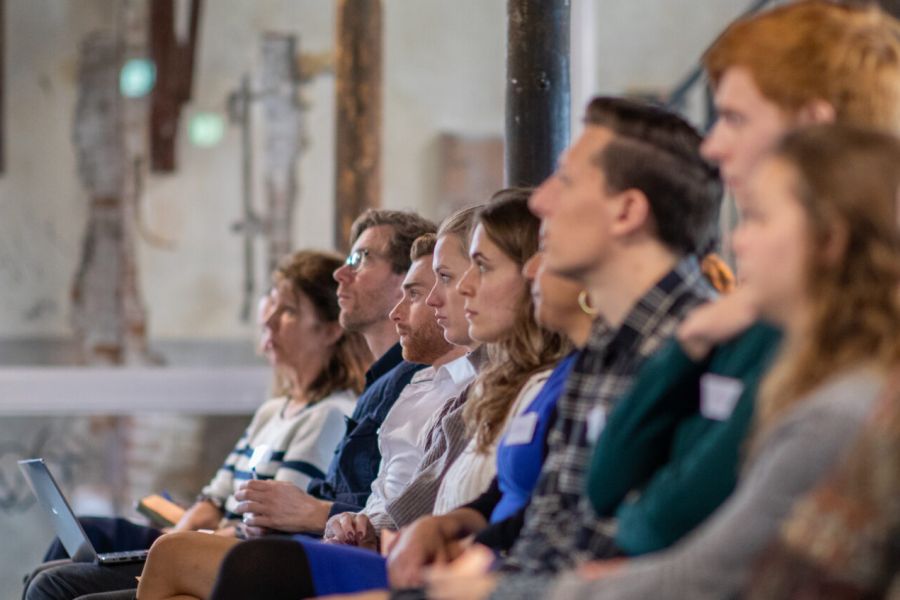23 project in a nutshell – The BioClock meeting!

On Monday, November 7th, close to 70 members of the BioClock consortium gathered at (Scheltema) Leiden for a fun and informative day; the cluster meeting. Nearly all PhD and Post doc candidates in short presented the current status of their project and discussed protocols, pilot results and future plans. In 18 short presentations, we met the worlds of writing medical-ethical protocols (to have your research approved prior to the start), how to best catch insects, didactic methods to educate high school students, challenges to include enough participants, effects of light on diurnal and nocturnal species and the importance of dark nights for moths, fish, plants and bats and shift workers in the Rotterdam harbor.


With the approaching winter, the field season has ended for Hannah, Ivanka, Danielle, Evelien, Sander and Gabriel from cluster 3 (clocks in nature). They will now focus more on analyses and laboratory experiments. They investigate, amongst other things, the influence of nocturnal light on plant growth, and which type of insects and bat species will behave differently with light at night. But also whether the light will cause a shift in the type of diet for these species. At last they gathered data on the importance of light intensity and color for health of species.
In the meantime, Francesca, Gali, Maaike, Heidi and Laura from cluster 1 (clocks in society) and Demy, Jorine, Emma and Oana-Giorgiana from cluster 2 (clocks in health care) have worked for months on designing and writing extensive protocols for their human studies. They will include all sorts of measurements, such as blood and saliva samples, questionnaires, brain scans, temperature monitors and sleep analyses. They want to include a large number of participants, such as shiftworkers or students, or they focus on more vulnerable individuals, including newborn babies and mental health patients. This leads to careful evaluations of their study designs and optimal protocols.






The first months of their project for Kornelija and Ayano (Cluster 1) and Ward (cluster 2) focused on learning techniques and running pilot trials. We saw the first promising results with a diversity of experimental animals and we are curious for the next results! Nihal (cluster 1) and Inge (cluster 2) have also demonstrated to learn new techniques albeit with a different focus: a didactical method for interactive teaching and chemical compositions in a search for a new drug, respectively. They also have clearly taken important steps in the first few months.



Ultimately we were excited that for two projects in WP2.3 and one project in WP2.4, new researchers have been appointed. Koen Vink and Tamara Brouwers will work at the RIVM and will study the importance of time of day in vaccinations. In WP2.4, a postdoctoral researcher was selected but had not officially started, nevertheless she attended the day.
With pride we witnessed the potential of the research that will further expand while at the same time a close group of clock-researchers is emerging. Our consortium is growing strong and we are already searching for a date for next year!


Photography by Hans van Kooten.

The BioClock Consortium is funded by the NWA-ORC programme of the Dutch Research Council (NWO; project number 1292.19.077).